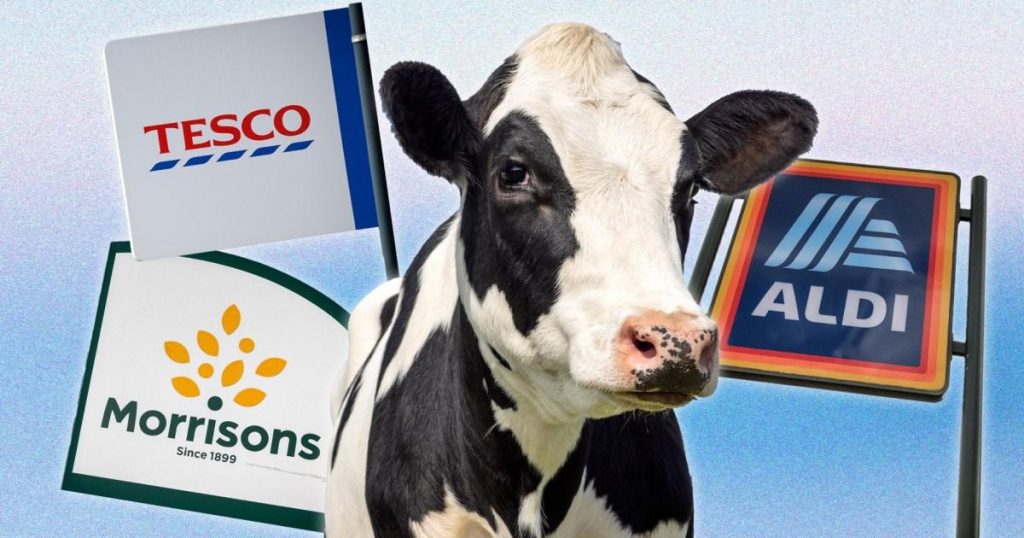Shoppers are considering boycotting major supermarkets such as Morrisons, Aldi, and Tesco due to concerns over the trial of an additive called Bovaer in cows used for Arla dairy products. Bovaer is added to cow feed to reduce greenhouse gas emissions, specifically methane, which is produced through cows’ farts and burps and contributes significantly to global warming. Even though the UK Food Standards Agency has approved Bovaer and deemed it safe for consumers, customers are angry about the trial on 30 farms.
The announcement by Arla regarding the trial of Bovaer has sparked outrage among shoppers, with some expressing their intention to boycott Arla products and the supermarkets that stock them. Concerns have been raised about the long-term health effects of Bovaer and the lack of transparency around what it is made of. Despite the uproar, Arla has clarified that there is misinformation circulating, such as false claims about Bill Gates benefiting from the trial of Bovaer at the farms. Bill Gates is not associated with the additive, but has invested in similar methane-reducing products through Rumin 8.
Bovaer has been approved for use in several countries, including the United States, Canada, Brazil, Chile, and the EU. The National Farmers’ Union Dairy Board Chairman Paul Tompkins believes that the trial with Morrisons, Aldi, and Tesco could provide farmers with confidence in the product. However, questions remain about the long-term efficacy of Bovaer, its practical use on farms, and its impact on animal health and welfare. Defra research has shown that shoppers are generally open to methane-suppressing products as long as they do not affect human or animal health.
Morrisons, Aldi, and Tesco have expressed their commitment to addressing climate challenges through collaboration with Arla’s FarmAhead Customer Partnership. They believe that a collective approach will make a difference in addressing the environmental impact of the food system. It is crucial to have a strong evidence base to give farmers confidence in using products like Bovaer. Despite the controversy, the supermarkets and Arla are working together to navigate the challenges of reducing methane emissions while ensuring the safety and well-being of animals and consumers.
In conclusion, the trial of Bovaer in cows used for Arla products has sparked debate among shoppers, farmers, and industry stakeholders about the implications of using methane-reducing additives in agriculture. While some are concerned about the potential health and environmental impacts, others see it as a necessary step towards reducing greenhouse gas emissions. It is essential for all parties involved to have transparent communication and a strong evidence base to ensure the safety and efficacy of such additives. The outcome of the trial and the response from consumers and the food industry will likely shape future decisions on the use of methane-reducing products in farming practices.











